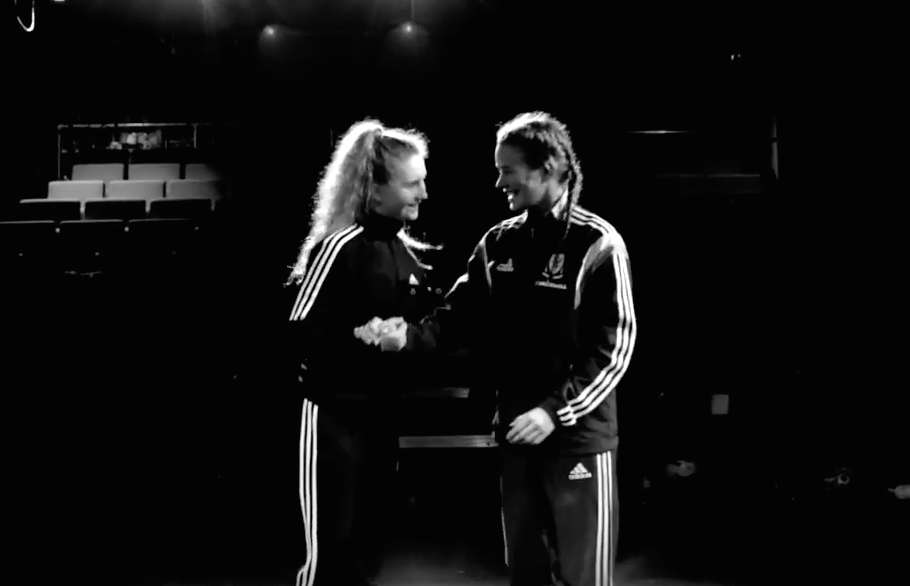A new play will tell the story of how Britain’s Football Association (FA) banned women from soccer for 50 years, The Guardian writes. Written by Sabrina Mahfouz and Hollie McNish, “Offside” explores the FA’s 1921 decision that deemed soccer to be “quite unsuitable for females and … not to be encouraged” and its aftermath — a chapter of history that is often ignored.
As Mahfouz told the source, “So many people were unaware that there had been a ban. Even people who are playing football now.”
“Offside” was inspired by Caroline Bryant, the artistic director of Futures Theatre, a company dedicated to promoting gender equality. Per The Guardian, Bryant is a lifelong soccer fan but was never allowed to play during her childhood and that injustice seemed to be “ripe for dramatization.” “Football is so much a part of British and world culture,” Bryant observed. “Why are women excluded from it?”
The play uses current and historical research to build three storylines — two from the past and one set today. “In the present, fictional characters Mickey and Keeley are pursuing their dream of playing for England. Spurring them on from the history books are Carrie Boustead, a black female footballer who was playing in the 1880s and 90s, and the National Football Museum hall of fame star Lily Parr,” The Guardian summarizes.
According to Mahfouz, Boustead’s story has been previously ignored due to the “‘whitewashing’ of British history.” Parr served as a winger for Dick, Kerr Ladies who gained growing crowds and fans after World War I alongside other women’s teams until the 1921 FA ban. “Citing medical concerns over its effects on women’s health,” the ban forced women out of organized soccer leagues and “crippled the burgeoning sport.”
The ban wasn’t lifted until 1971, but even after 46 years its effects are still felt. Commenting on her interviews with female soccer players, Mahfouz said, “There was just such palpable frustration.” says Mahfouz, reflecting on her conversations with players. One of the players, Millwall Lionesses defender Leanne Cowan, told The Guardian that she holds down three or four jobs in addition to being a footballer. “Such a situation is not uncommon for female footballers, while their male counterparts earn often astronomical sums,” the source writes.
Women’s soccer is an “amazing little microcosm of the history of women’s rights,” McNish emphasized. Some of the stories she and Mahfouz tied into the play are the late-1800s “rational dress movement,” in which women fought for the right to wear clothes that were conducive to sports, and the women’s fight for the vote in Scotland, which was “closely linked” to their fight to play football.
Besides “Offside,” several other projects about women’s sports have made headlines, including CSN’s women’s sports doc “Tomboy”; Charlene Fisk and Carrie Schrader’s golf documentary “The Founders”; Laura Karpman and Gail Collins’ “Battle of the Sexes” opera, “Balls”; and Lifetime’s partnership with the National Women’s Soccer League.
“Offside” will run at the Harrogate Studio Theatre March 24 and 25 and then will tour until April 29.







